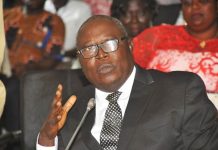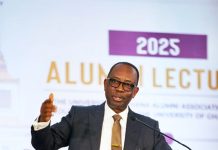A renowned economist, Kwame Pianim, has called on African leaders to adopt new strategies towards financing infrastructure development internally to enable them reach the goals set for the Africa Continental Free Trade Area (AfCFTA).
According to him, infrastructure – road, railways and ferries/ships – is central to intra Africa trade, as, without it, it will be extremely difficult for transportation of goods and services.
Mr Pianim was one of discussants at the third edition of Kusi Ideas Festival, held in Accra over the weekend, under the theme: “How Africa Transforms After the Virus.”
He argued that the drive for trade would naturally take place if the infrastructure exists to create opportunities for the continent and its occupants. Mr Pianim suggested that one way to finance such huge infrastructure development was to judiciously invest the pension funds burgeoning across Africa into this area.
The idea, he said, was to reduce the over-dependence on development partners for the financing of critical projects such as infrastructure development. “The money to build the infrastructure is here in Africa. If we are prepared to build our income from pension funds – taking it from roughly 1% to 3% – that is $80 billion right here that can be spent.
“We need to find new ways of financing our big infrastructure projects. We cannot continue to depend on development partners or foreign financing to make our infrastructure possible… We need a seismic change of mindset for the economies of the continent of Africa to move.”
Nation Media Group (NMG) launched the Kusi Ideas Festival in 2019 during its 60th-anniversary celebration. The festival aims to be an “ideas transaction market” for the challenges facing Africa, and for the various solutions and innovations the continent is undertaking to secure its future in the 21st century.
The Kusi is the southerly trade wind that blows across the Indian Ocean between April and mid-September, and enabled trade up north along the East African coast and between Asia and Africa for millennia.
Beyond trade, over the centuries, the Kusi and other trade winds made possible cultural, intellectual and technological exchanges, and considerably shaped the history of the nations on the east coast of Africa, the eastern hinterland, and the wider Indian Ocean rim.
In the 21st century, the spirits of the trade winds express themselves in new ways. The Indian Ocean is a rich bed for the fibre-optic cables that make the Information Age possible in a large part of Africa.
The first Kusi Ideas Festival was held in Kigali, Rwanda, and was co-hosted by President Paul Kagame.









